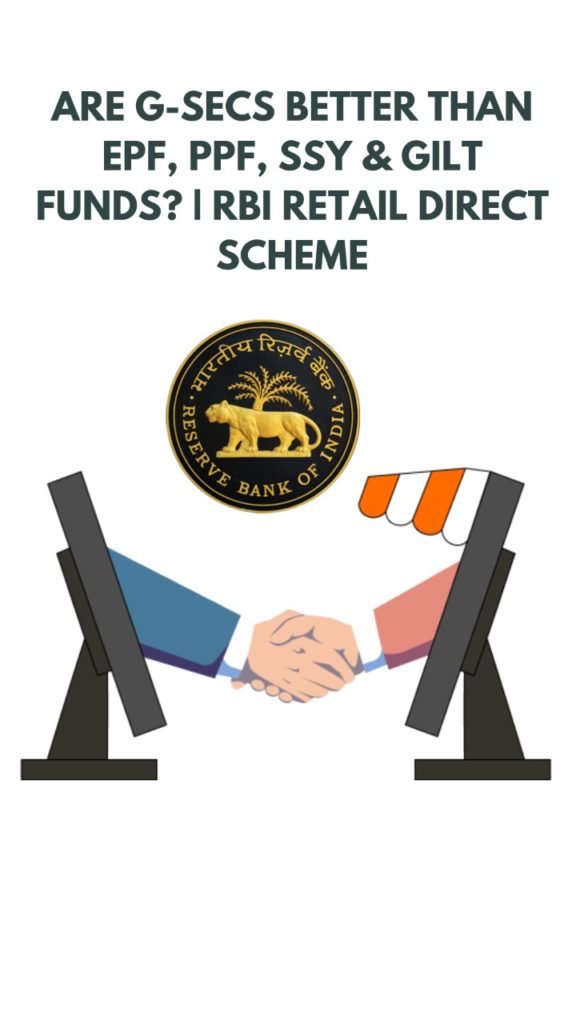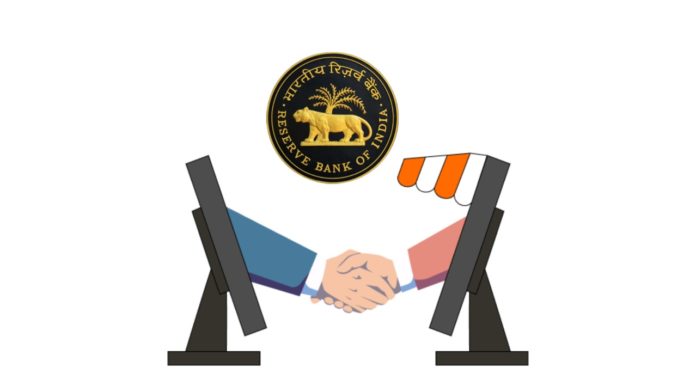The RBI Retail Direct Scheme was launched on 12th November, 2021. It provides a one-stop place for investment in Government Securities (G-Secs) by retail investors. This gives individual retail investors the opportunity to open Gilt Securities Account – “Retail Direct Gilt (RDG)” Account with the RBI.

Table of Contents
Scope of RBI retail direct scheme
With the RBI retail direct scheme, retail investors will get access to trading government securities in the secondary market, which was not an option earlier. Previously, individual retail investors could only trade directly with the government in the primary market. Hence, normal investors now get a chance to invest directly in securities issued by the government. This will be possible through access to a portal called NDS-OM.
What is NDS-OM?
NNDS-OM stands for Negotiated Dealing System-Order Matching system. It is a screen based electronic anonymous order matching system for secondary trading in market for G-Sec owned by the RBI. Currently, NDS-OM portal is only accessible to banks, primary dealers, insurance companies, mutual funds, etc., which are entities who maintain SGL accounts with RBI. However, once retails investors open a Retail Direct Gilt (RDG) Account with the RBI, they will have access to NDS-OM as well.
Types of securities
The Retail Direct Gilt account allows the investor to trade in the following assets:
- Treasury bills, which have a maturity period of under 365 days.
- Government securities, which can have a maturity period of anywhere between 1 to 40 years.
- State Development Loans (SDLs), which can have maturity period of up to 10 years.
- Sovereign Gold Bonds (SGBs), which can anyway be invested in without this account.
Advantages of RBI Retail Direct Scheme
- There is no credit risk in investing in any government issued bonds.
- Investment is possible for as low as Rs 10,000 and in multiples of it thereafter.
- Provides investors with the opportunity to trade in secondary markets if they do not wish to hold onto these securities any longer. However, access to secondary market will need to be requested for the account by opting for the option of NDS-OM.
- There are no account opening or maintenance charges applicable. Only a one-time application form needs to be submitted at the beginning.
Disadvantages of RBI Retail Direct Scheme
1. Low interest rates
The interest rates for RBI retail direct schemes vary from 4.56% to 7.10%. Moreover, the Yield to Maturity varies from 5.36% to 7.42%. These are quite low considering other government schemes such as PPF, EPF, SSY, EPS, etc., which have a higher interest rate than this RBI scheme. EPF interest rate is currently at 8.1%, PPF at 7.1% and SSY at 7.6%. Since all these options are government schemes at the end of the day, they are equally risk free too.
2. Terribly taxable
Interest payment for government bonds may be half-yearly or annually, which is added to one’s income and taxed as per the tax slab rates. Additionally, if the bond was sold in secondary market before reaching maturity, then one has to pay capital gain on it.
On the other hand, schemes like EPF, PPF, SSY, etc., are tax exempt on their interest earned. Moreover, the principle paid for these these schemes are also deductible under tax.
Alternatively, one can invest in gilt funds. Gilt funds invest money in purchasing units of a mutual fund. The investment earned falls under capital gain and interest income. This also comes with the benefit of indexation.
3. Liquidity
While there is the option to sell G-Sec in secondary market, there may not be many buyers for it as currently the scheme is quite new. On the other hand, debt funds do not have this problem of liquidity, as long as there is not an overwhelming number of redemption requests.
4. Interest rate risk
The interest rate of newer bonds in the market may be higher than the one being held. Hence, it may be difficult to sell a lower interest rate bond in the market, if a better interest option is already out there. Predicting the interest rate of future bonds is difficult. Meanwhile, debt funds are held by experienced fund managers who are adept at predicting market volatility. They can take the decision of sell or buy themselves without owner’s intervention.
Who should invest in this?
- If one has already invested in other government schemes such as EPF, PPF, SSY, etc., upto Rs 1 lakh.
- Debt fund investment is already done or not an option.
- If one is looking for an income generating investment without compounding.
- One is looking for an investment option without a conservative lock-in period.
- There is no credit risk involved.
Watch more details on RBI retail direct scheme in the video below.
Join the LLA telegram group for frequent updates and documents.
Download the telegram group and search ‘Labour Law Advisor’ or follow the link – t.me/JoinLLA
It’s FREE!



